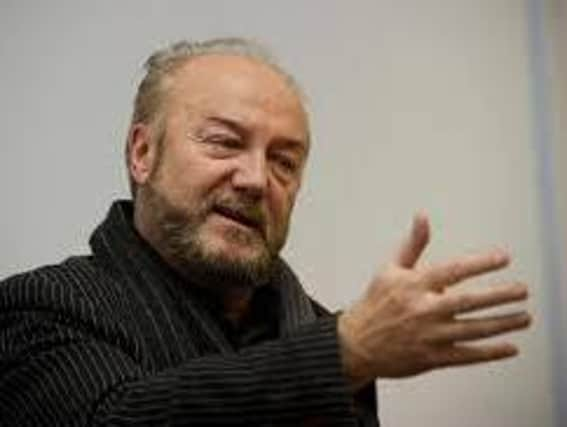News channel RT loses legal challenge over £200k fine for impartiality offences


Ofcom sanctioned the Kremlin-backed broadcaster, formerly known as Russia Today, over seven news and current affairs programmes between March 17 and April 26 2018, which the watchdog found breached the requirement for news to be presented with "due impartiality".
Two of the sanctioned broadcasts were editions of Sputnik, presented by former MP George Galloway, which covered the poisoning of Russian ex-spy Sergei Skripal and his daughter Yulia in Salisbury, Wiltshire, in March 2018.
Advertisement
Hide AdOfcom also found that four news and current affairs broadcasts addressing the US's involvement in the Syrian conflict, and a news programme concerning the Ukrainian government's position on nazism and the treatment of Roma gypsies, breached impartiality rules.
At a High Court hearing in October, the broadcaster's lawyers said the dominant media narrative from other broadcasters was the UK Government's belief that the Russian state had been involved in the attack, meaning RT did not need to reproduce it.
Giving judgment remotely on Friday, Lord Justice Dingemans - sitting with Dame Victoria Sharp, the president of the Queen's Bench Division - dismissed RT's claim.
The judge said RT's "concept of a dominant media narrative is a nebulous one", which would make it "difficult, if not impossible, for broadcasters to discern in advance precisely what the dominant media narrative was, and what could be broadcast".
Lord Justice Dingemans said that could produce a "chilling effect" on broadcasters, which would be "likely to inhibit rather than enhance their freedom of expression".
He added: "RT's submission that the dominant media narrative reduces the harm from the broadcasts in my judgment misses the point about the importance of the viewers who are not aware of the other viewpoint."
Advertisement
Hide AdThe judge also rejected RT's contention that the "due impartiality" requirement in news broadcasts interfered with its right to freedom of expression.
He said the requirement was necessary because "at present, the broadcast media maintains a reach and immediacy that remains unrivalled by other media".
Advertisement
Hide AdLord Justice Dingemans stated: "Indeed, there is reason to consider that the need (for due impartiality) is at least as great, if not greater than ever before, given current concerns about the effect on the democratic process of news manipulation and of fake news."
The judge continued that "where viewers access news on media which is not the subject of a requirement of 'due impartiality', they may receive only one viewpoint to the exclusion of other viewpoints".
He said: "In such circumstances a viewer may interact only with one viewpoint, and the media accessed by that viewer may become 'an echo chamber' or 'information silo' for that single viewpoint."
Lord Justice Dingemans concluded: "This is not a case where RT were restricted from broadcasting the material that they wished to broadcast on the Salisbury poisoning, the war in Syria, or on events in Ukraine.
"The only requirement was that, in the programme as broadcast, RT provided balance to ensure that there was 'due impartiality'."
An Ofcom spokeswoman said: "Trust in news and current affairs has never been more important, and RT's failures to preserve due impartiality were serious and repeated.
"So we welcome today's judgment th0at our investigation and decisions were fair and proportionate."
An RT spokesman said: "We are aware of the court's decision, and we intend to appeal.
